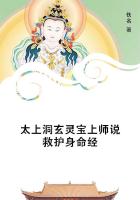Then Socrates: I am prepared to obey the laws, but to avoid transgression of the law through ignorance I need instruction: is it on the supposition that the art of words tends to correctness of statement or to incorrectness that you bid us abstain from it? for if the former, it is clear we must abstain from speeking correctly, but if the latter, our endeavour should be to amend our speech.
To which Charicles, in a fit of temper, retorted: In consideration of your ignorance, Socrates, we will frame the prohibition in language better suited to your intelligence: we forbid you to hold any conversation whatsoever with the young.
See Aristot. "de Soph. El." 183 b7.
Then Socrates: To avoid all ambiguity then, or the possibility of my doing anything else than what you are pleased to command, may I ask you to define up to what age a human being is to be considered young?
For just so long a time (Charicles answered) as he is debarred from sitting as a member of the Council, as not having attained to the maturity of wisdom; accordingly you will not hold converse with any one under the age of thirty.
The Boule or Senate. See W. L. Newman, "Pol. Aristot." i. 326. Soc. In ****** a purchase even, I am not to ask, what is the price ofthis? if the vendor is under the age of thirty?
Cha. Tut, things of that sort: but you know, Socrates, that you have a way of asking questions, when all the while you know how the matter stands. Let us have no questions of that sort.
Soc. Nor answers either, I suppose, if the inquiry concerns what I know, as, for instance, where does Charicles live? or where is Critias to be found?
Oh yes, of course, things of that kind (replied Charicles), while Critias added: But at the same time you had better have done with your shoemakers, carpenters, and coppersmiths. These must be pretty well trodden out at heel by this time, considering the circulation you have given them.
Cf. Plat. "Gorg." 491 A; "Symp." 221 E; Dio Chrys. "Or." 55, 560D, 564 A.
Soc. And am I to hold away from their attendant topics also--the just, the holy, and the like?
Most assuredly (answered Charicles), and from cowherds in particular; or else see that you do not lessen the number of the herd yourself.
Thus the secret was out. The remark of Socrates about the cattle had come to their ears, and they could not forgive the author of it.
Perhaps enough has been said to explain the kind of intimacy which had subsisted between Critias and Socrates, and their relation to one another. But I will venture to maintain that where the teacher is not pleasing to the pupil there is no education. Now it cannot be said of Critias and Alcibiades that they associated with Socrates because they found him pleasing to them. And this is true of the whole period. From the first their eyes were fixed on the headship of the state as their final goal. During the time of their imtimacy with Socrates there were no disputants whom they were more eager to encounter than professed politicians.
Thus the story is told of Alcibiades--how before the age of twenty he engaged his own guardian, Pericles, at that time prime minister of the state, in a discussion concerning laws.
Alc. Please, Pericles, can you teach me what a law is?
Per. To be sure I can.
Alc. I should be so much obliged if you would do so. One so often hears the epithet "law-abiding" applied in a complimentary sense; yet, it strikes me, one hardly deserves the compliment, if one does not know what a law is.
Per. Fortunately there is a ready answer to your difficulty. You wish to know what a law is? Well, those are laws which the majority, being met together in conclave, approve and enact as to what it is right to do, and what it is right to abstain from doing.
Alc. Enact on the hypothesis that it is right to do what is good? or to do what is bad?
Per. What is good, to be sure, young sir, not what is bad.
Alc. Supposing it is not the majority, but, as in the case of an oligarchy, the minority, who meet and enact the rules of conduct, what are these?
Per. Whatever the ruling power of the state after deliberation enacts as our duty to do, goes by the name of laws.
Alc. Then if a tyrant, holding the chief power in the state, enacts rules of conduct for the citizens, are these enactments law?
Per. Yes, anything which a tyrant as head of the state enacts, also goes by the name of law.
Alc. But, Pericles, violence and lawlessness--how do we define them? Is it not when a stronger man forces a weaker to do what seems right to him--not by persuasion but by compulsion?
Per. I should say so.
Alc. It would seem to follow that if a tyrant, without persuading the citizens, drives them by enactment to do certain things--that is lawlessness?
Per. You are right; and I retract the statement that measures passed by a tyrant without persuasion of the citizens are law.
Alc. And what of measures passed by a minority, not by persuasion of the majority, but in the exercise of its power only? Are we, or are we not, to apply the term violence to these?
Per. I think that anything which any one forces another to do withoutpersuasion, whether by enactment or not, is violence rather than law.
Alc. It would seem that everything which the majority, in the exercise of its power over the possessors of wealth, and without persuading them, chooses to enact, is of the nature of violence rather than of law?
To be sure (answered Pericles), adding: At your age we were clever hands at such quibbles ourselves. It was just such subtleties which we used to practise our wits upon; as you do now, if I mistake not.
To which Alcibiades replied: Ah, Pericles, I do wish we could have met in those days when you were at your cleverest in such matters.
Well, then, as soon as the desired superiority over the politicians of the day seemed to be attained, Critias and Alcibiades turned their backs on Socrates. They found his society unattractive, not to speak of the annoyance of being cross-questioned on their own shortcomings. Forthwith they devoted themselves to those affairs of state but for which they would never have come near him at all.















